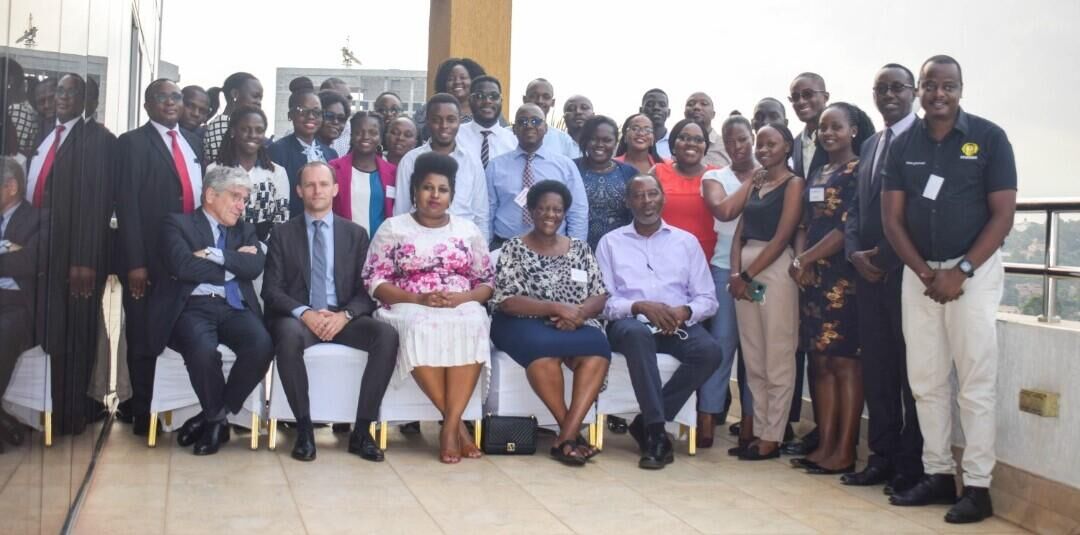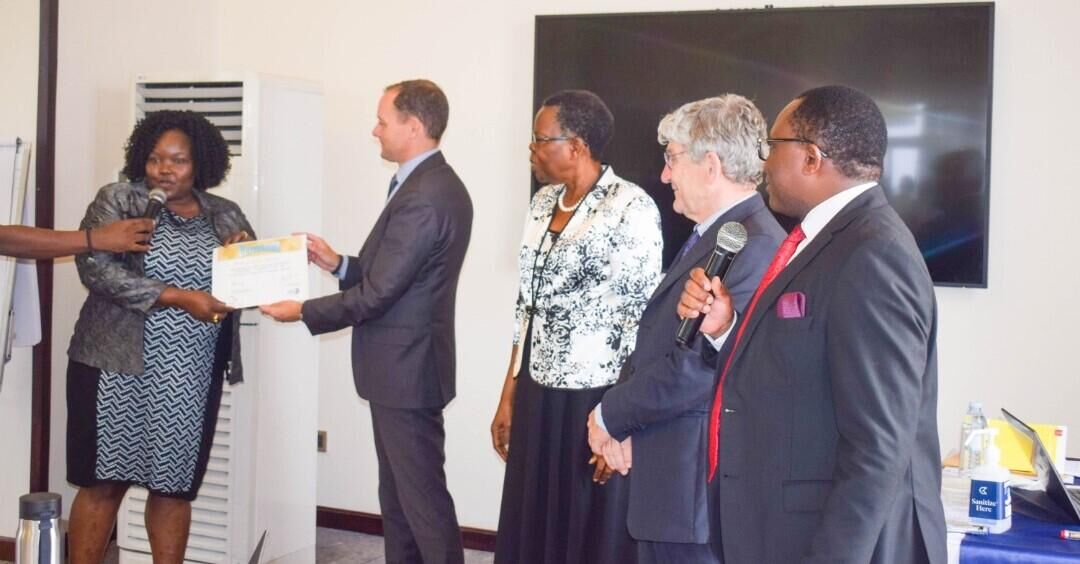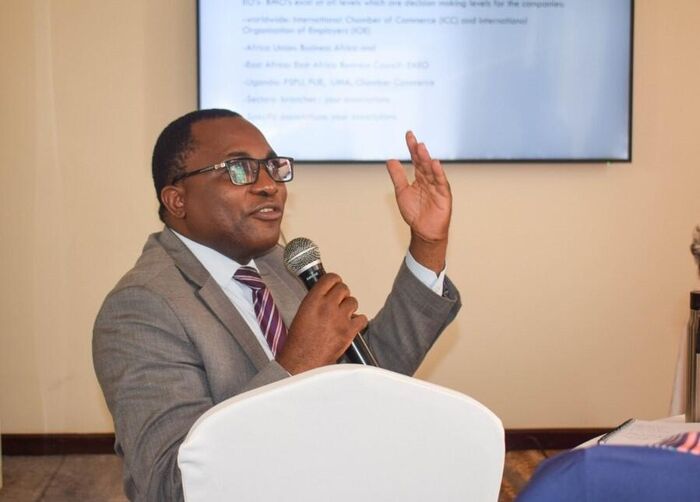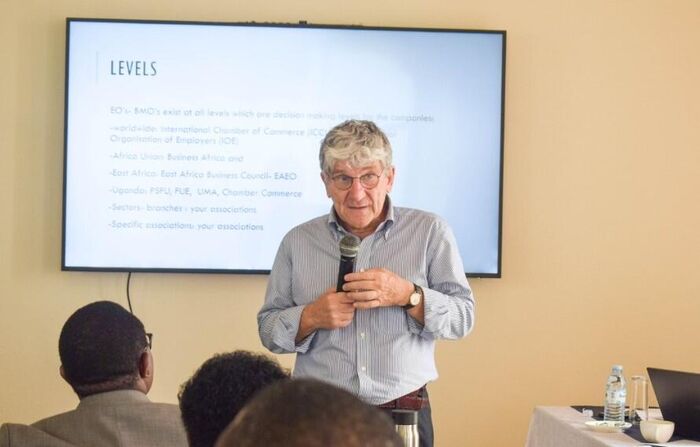

DECP EXTENDS OUTREACH TO PRIVATE SECTOR FOUNDATION (PSFU), THE BIGGEST BUSINESS MEMBER ORGANISATION in UGANDA
The employers and business member organisations with which DECP partners in the countries where it is active almost all belong to the network of the International Organisation of Employers (IOE). This organisation, based in Geneva, is directly linked with the International Labour Organisation (ILO). In essence it regroups employers organisations.
In Europe, this IOE network, of which VNO-NCW is a long standing prominent member, comprises for most countries the national organisations which are the employers and business member organisations (EBMO), meaning these organisations have a general mandate to deal with all issues which concern companies as businesses (“economic“ issues) and as employers (“social” issues). In other words, these EBMOs are dealing with the whole panoply of subjects, ranging from social affairs to trade, to R&D, to climate, to CSR. The most notable exception to that European approach would be Germany where there is still the distinction between the German employers confederation (BDA), dealing with social affairs, and the German economic confederation (BDI).
In developing countries however, the duality in organisations is more frequent. The colonial legacy (and maybe other factors) implies that separate organisations continue to deal more exclusively with economic business, or are more exclusively focused on social policy issues (with additional nuances if they are linked up with the more French or English oriented systems).
In its capacity development role, DECP has always respected the division of work between organisations, as defined at national level, and focused on the organisations with a more social policy orientation. The positive side of this choice was the capacity to build on the very active network of the IOE and the ILO. The negative side is that probably some opportunities for broader contacts, e.g. in trade, are lost in some countries.
Uganda is an example of the above sketched situation. DECP has been building extensive activities to support the growth of FUE, the Federation of Uganda Employers.
With the active support of the Dutch embassy, which insisted on broadening the DECP partnerships, DECP now got invited to work with PSFU, the Private Sector Foundation of Uganda, on a capacity building activity. PSFU is a more general employers and business member organisation, which is the cupola of about 300 small and big sector associations (and thousands of indirect company members, of which some Dutch subsidiaries), ranging from the food sector, to construction, to the informal economy, real estate, agriculture processing, pharmaceuticals, etc. PSFU is very representative for the Uganda economy, very active in trade issues, and also influential, as being represented on some key bodies such as the presidential Council.

Mr. Joost van Ettro of the Dutch embassy hands out the diploma's
The training activity itself, of 2 days, for the 20 largest sector associations, went very well. It overviewed the key roles and activities of business member organisations and how they can improve their performance, via better governance, better policy influence, more membership and better services. To quote Francis Kisirinya, the acting Executive Director of PSFU: “Thanks to DECP for a wonderful course delivered: work well done which exceeded our wildest expectations”.
The merger of DECP with PUM may probably be an opportunity to examine the extension of similar broadening of partnerships in other countries as to reach out to more actors and organisations in developing countries, which combine the social and economic concerns and interests of businesses.
The mission of the DECP country manager, Arnout De Koster, of course also had attention for the long standing partner of DECP, i.e. the employers’ organisation FUE.
In the activities developed for them, the focus lied fully on increase of membership: how to do? What can be done more or better?
The Board of FUE was involved and showed its strong interest for the issue and its willingness to become more active by monitoring better the evolution of membership, and by getting directly involved in membership retention or recruitment via direct contacts with peer CEO’s. Concrete recommendations were reached and will be implemented.
The full permanent FUE staff was also trained, to introduce a culture of consumer orientation in the organisation, and to develop further thinking on how to move forward with this culture in practice and in the account management, in which lots of staff members are involved.
The spotlight conclusions and good intentions: improve and increase good data collection via CRM and robust datamining, in order to enhance and deepen the knowledge of the members (the consumer), their behaviour and real needs; improve promotion and awareness; rethink some pricing policies; focus on improving the quality, needs orientation and relevance of the services and include also more elements to bond members emotionally to the organisation via networking and social events; give special attention to new members. As a matter of fact, these priority measures, adapted to the Uganda context, are also explored with more length, detail and concrete examples in the book published by DECP and ILO on membership strategies and policies. See: https://www.decp.nl/publications/manual-on-membership-strategies-and-policies-40059
It is strongly hoped that these exercises with FUE will be put into practice. The FUE membership needs indeed to pick up again with real solid growth figures. The previous good news was stabilisation of FUE’s membership figures after Covid 19 which is positive. However, now the ambition has to be higher.




Mr. Francis Kisirinya, (PSFU) and Mr. De Koster (DECP) in action